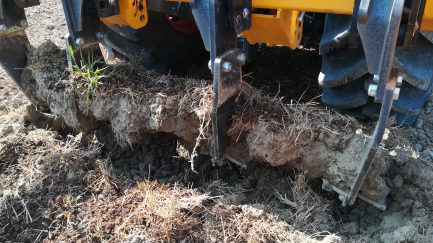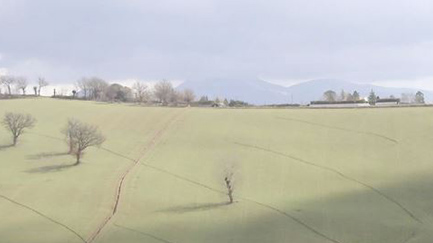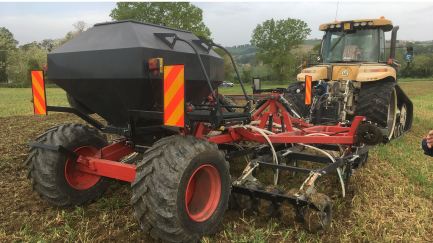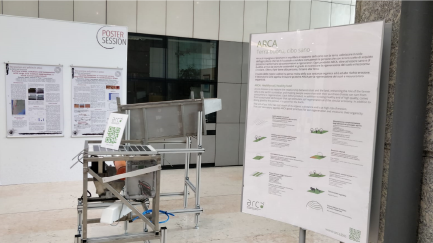Are you a farmer who has already started a biological choice?
Are you a producer of excellence food?
Are you ready to choose ARCA practices?
Are you willing to invest and be involved as a protagonist in the direct relationship with the people who consciously choose ARCA food?
ARCA farmers and contractors love the soil and their work, they know traditional agriculture, nature’s mechanisms and they want to go deeper into them, they want to study them more deeply in favour of man and for the preservation of nature itself.
ARCA farmers and contractors are aware of the significant beneficial consequences due to the adoption of bio-preservative farming practices: to regenerate the soil also means to regenerate the entire environment, to regenerate themselves and above all to regenerate the place where the farmer lives and works daily, making it better, that is, exactly like food, a healthy, clean and also beautiful place. Choosing to adopt ARCA agronomic practices, farmers avoid their own and their family’s exposure to highly toxic chemical products.
Conventional agriculture, in estimating the value of a piece of land, does not consider as parametres of esteem the soil vitality, the speed of corrivation of waters and the ability to hold carbon. According to this perspective, the soil is only considered as an element to exploit and this might cause a significant depletion of the soil resources.
Instead, with the ARCA regenerative practices, which are deeply rooted in the assumption according to which the soil is the first productive factor, a soil increases its value in proportion to its fertility. First of all, there’s an increase in the soil’s productive potential and in its related economic value; in addition, conditions are imposed for the reactivation of biodiversity, beauty and excellence employment.
The bio-preservative regenerative techniques of ARCA, official partner of the Global Soil Partnership, are defined in the ARCA Regenerative Soil System®, that is the technologies and the good agronomic practices which can be utilized by farmers and described in the following Charter of the Farmer and the Contractor.
THE CHARTER OF THE ARCA FARMER AND CONTRACTOR

He is a modern man, aligned with his time but conscious of the value of tradition. He is a real businessman, who not only aims at getting public funding, but who has also found out an alternative and virtuous way to earn a decent quantity of money with the company, as today the real value derives from the quality of its production. His company will anyway enjoy the public funding due to him especially for the social service, carried out through the care of the soil and the environment.
He sows, between one cash crop and another, the cover crops in order to seize the atmospheric carbon and to store it in the soil, to limit its erosion, to enrich it with minerals and organic substances, to improve its structure, to give back its vitality, scent and productivity. Making also bees happy, which find a new flourishing and now outdated essences available, such as sulla, veccia, mustard, oil seed rape.


He flanks old practices to new techniques and technologies, essential for real regenerative agriculture: crop rotations so as not to stress the soil, organic fertilizations to enrich it, intercropping, that is the simultaneous farming in the same space of two different species which interact between them (for instance, wheat and proteic pea, or barley and lentils).
He uses machines covered by patent and techniques deriving from a long scientific research which cause a minimal inconvenience to the soil by processing at 5-6 cm depth, ventilating the soil, avoiding reversing the pedological horizons and without overturning clumps, thus creating the best conditions for the processes of humification and the consequent regeneration of organic substance. Moreover, that is how we favour the management of the soil carried out both by the root systems of cultivations and by the microflora which is associated to them.


He preserves over the years the soil fertility also through a correct optimization of surface waters, decreasing the corrivation time, increasing the soil’s power of filtering and making groundwater cleaner.
He uses tractors of precise power, not too heavy, in order not to compact the soil excessively, instead of oversized tractors, useless fossil energy heat sinks. Moreover, he limits to the minimum the traffic in the plots, providing the vehicles used with adequate rubber wheeling.


He appropriately uses all the technology available and through a correct relation with Universities and Research Centres he wants to renovate his knowledge repeatedly.
He is a partner at a systemic level to his colleagues and the local institutions; he is integrated in acknowledged excellence agricultural and food supply chains and has shares of capital of the business company which places his products. His market is the world.

AN ARCA CONTRACTOR IS ALSO AWARE, IN TERMS OF EFFECTIVENESS AND EFFICIENCY, WITH RESPECT TO:
1 Deep knowledge of agronomic principles.
2 Talent for innovation and new techniques and technologies.
3 Sensitivity and meticulous care of the techniques.
4 Qualitative approach.
5 Rapidity of intervention.
6 Income generation linked to the performances of excellence of the job.
ARCA AGRONOMIC PRACTICES

To adopt a balanced long-time rotation plan based on the soil vocationality fostering the crop diversification of every single company.
To reduce the processing of the terrains encouraging the natural regeneration of the soils, where possible, even through direct sowing.
To introduce cover crops and green manure between an income crop and another with the aim of keeping the soil covered all year long.
To apply balanced organic fertilizations with an improving and nutritious effect.
To rule the soil’s water regime and to maintain the efficiency of the agricultural plumbing systems guaranteeing a correct drainage of rainwater.
To predict a permanent or controlled grass cover between the rows of specialized tree crops increasing the provision of organic substance and reducing erosion.

To preserve a buffer zone with a buffer effect along the main and secondary waterways.
SUBSCRIBE TO OUR NEWSLETTER,CONNECT TO OUR SOCIALS, FOLLOW OUR BLOG, COMMENT, SHARE AND SPREAD THE ARCA IDEA.


Partner




